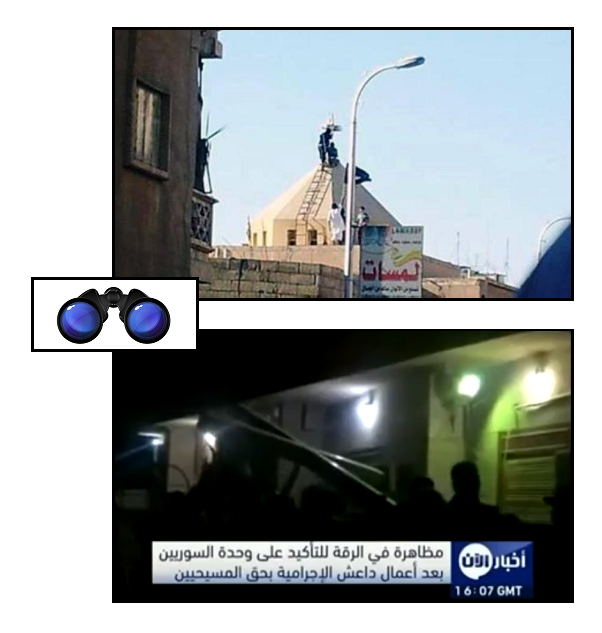200 lashes for a Saudi rape victim???
Sunday, September 29th, 2013[ by Charles Cameron — how a half-baked, re-raked tale from 2007, now showing on my local Facebook, gets things all wrong ]
.
Let’s set the record straight.
It seems that Nicholas Kristof of the New York Times did the amplification in this case. He tweeted, and Mia Farrow retweeted him, so we know what he said:
!! RT @NickKristof: No words: A Saudi woman is gang-raped by 7 men; then a Saudi court sentences her to 200 lashes! http://t.co/Vm6M6AzwZG
— mia farrow (@MiaFarrow) September 27, 2013
I can’t find Kristof’s original tweet, I guess he’s deleted it. About the same time Mia Farrow was RTing it, though, and thus saving it for the record, he tweeted:
I'm wondering (via @JMHall_) if the Saudi case that the Examiner is reporting is the old 2007 Qatif Girl lashing case, rather than a new one
— Nicholas Kristof (@NickKristof) September 27, 2013
And if you go to JM Hall‘s twitter stream, you’ll see that he was schooling Kristof on this one, and pointed him to an NYT piece from 2007. Funny, that — being an NYT piece and all…
**
Anyway, the word got out on Facebook and went at least a little viral. And that’s sad. Because while the story does illustrate the state of jurisprudence in Saudi in 2007, the raped girl never actually received those 200 lashes — she was personally pardoned by the King.
Which should be a reason for rejoicing, not condemnation.
But here’s how it was presented on my FB page —
That does somewhat encourage the reader to think she did in fact receive those lashes, doesn’t it?
**
I understand, Nick Kristof tweeted it — and he’s the good guy who helps a whole heap of socially beneficial causes around the world that deserve all the support and encouragement he can bring them. I’m not disputing that, in fact I’ll gladly stipulate it.
But the story was wrong, and wrong in a damaging way. And forwarding or endorsing this sort of thing makes me very sad. Let me explain why.
The Examiner.com is an outfits that “operates a network of local news websites, allowing ‘pro–am contributors'” — nothing wrong with that, you just need to be careful when you read them, in other words.
The Examiner article in question quotes the Clarion Project, calling it “the women’s rights-centered news portal” when it’s far better known as the source of a whole lot of anti-Islamic propaganda — the Muslim organization CAIR lists Clarion among the “Islamophobia Network’s inner core” groups, while Clarion views CAIR with similar distaste. Okay, maybe they cancel each other out, let’s stipulate that, too.
But the article then states that the Clarion piece was posted “on Sept. 22, 2013” — whereas if you click through, you’ll find it’s actually dated Thu, November 15, 2007 — it’s 5 going on 6 years old. So why drag it up again now?
**
Retired US diplomat John Burgess who blogs about Saudi Arabia quotes to us, in a blog post from December 2007 and titled ‘Qatif Girl’ Receives Saudi Royal Pardon, an article from Agence France Presse in Riyadh, also dated December 2007, which can tells us what actually happened — how this unhappy story ended:
RIYADH (AFP) — Saudi Arabia’s King Abdullah has pardoned a teenage girl sentenced to six months in jail and 200 lashes after being gang raped, Al Jazirah newspaper reported on Monday.
The ruling against the 19-year-old girl in the ultra-conservative Muslim kingdom had attracted widespread international condemnation, including from human rights groups and the White House.
The Arabic language daily said it had been informed of the royal pardon from its own, unidentified, sources.
But in the same article, the kingdom’s Justice Minister Abdullah bin Mohammad bin Ibrahim Al Shaikh told the paper the king had the “right to overrule court judgements if he considered it benefiting the greater good.”
The minister added that the king, who is viewed by many as a cautious reformer, was concerned with “the needs of the people and the court judgments that are made against them.”
Got that? Pardoned. By the King. Who is viewed as a cautious reformer.
I hope Kristof and Farrow have let their friends know…
**
So the Examiner writer whose work Kristof and others are quoting has:
picked up a nasty story from Saudia Arabia almost six years ago, that actually didn’t end in a girl being given 200 lashes for being raped but resulted in the King personally pardoning her, thus moving Saudi jurisprudence in a very welcome new direction
— and posted it without any of the redeeming parts, with attribution to a group that’s not exactly friendly to the House of Saud, and getting the date wrong by almost six years in the process… And then well-meaning, generous people — Nick Kristoff and some of my friends among them — circulate this ugly and incomplete story, without first checking to see what truth there is to it.
I quoted a source without checking its veracity only the other day [1, 2, 3], so I’m in no position to go around blaming people who don’t check their sources. But seeing this particular story of the 200 lashes go viral makes me sad — because repeating it only stirs up righteous anger, disgust and hatred.
Rape is terrible. A penal code that sentences people to 200 lashes is way, way beyond my sense of justice. But I don’t believe stirring up hatred between nations or against religions is the path we want to choose…








